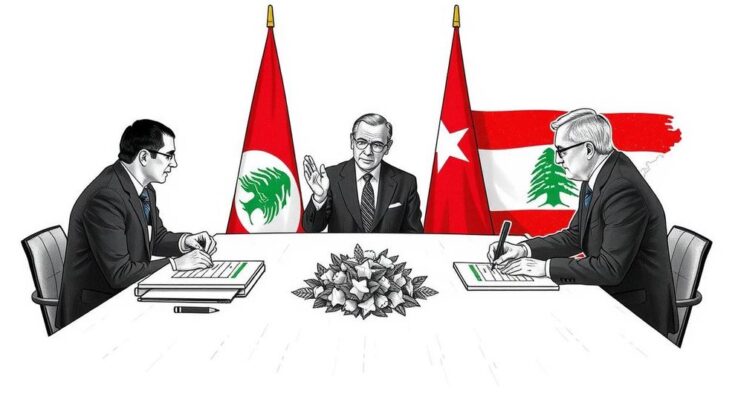During the Manama Dialogue, External Affairs Minister S. Jaishankar addressed the complexities of ongoing conflicts in West Asia, particularly in Gaza, Lebanon, and Syria. He emphasized India’s role as a mediator between Israel and Iran and spoke on the importance of mitigating maritime security risks in the region. Jaishankar also highlighted India’s economic growth objectives and the significance of the West Asian region to achieve those goals.
On December 9, 2024, at the Manama Dialogue in Bahrain, External Affairs Minister S. Jaishankar underlined the complexity of conflicts spanning Gaza, Lebanon, and Syria. He emphasized that with the recent developments in Syria, particularly the rebel claims of having ousted the Assad regime, it is crucial for India to navigate the competing interests within West Asia realistically. Jaishankar articulated the importance of these ongoing challenges, asserting that solutions must be approached collectively and effectively.
Furthermore, he addressed the fraught relationship between Israel and Iran, citing it as a significant concern in India’s diplomatic endeavors. “We are one country that has the ability to speak to both Israel and Iran… at the right moment, right people get what the intended message is,” he remarked, referencing India’s unique position as a communication bridge between these nations. He noted that incidents like the recent missile strikes from Iran to Israel following escalations undermine regional stability.
Jaishankar also discussed the implications of Houthi militant attacks on commercial shipping in the Red Sea, acknowledging India’s vested interest in assuring maritime security and mitigating the associated economic disruptions. He underscored India’s economic aspirations, highlighting the country’s projection to significantly expand its trade and economic footprint in the coming decade.
In conclusion, Minister Jaishankar’s comments reflect India’s strategic interests in navigating the multifaceted conflicts in West Asia while maintaining important diplomatic channels with both regional and global actors. The future of India’s engagement in the Middle East is critical not only for its own economic growth but also for regional security dynamics.
The ongoing geopolitical instability in West Asia comprises a complex web of conflicts involving various nations and non-state actors. The situation in Syria has reached a critical juncture, particularly with the rebels claiming significant victories against the Assad regime. Such developments, coupled with the turbulent relationship between Israel and Iran, signal a pressing need for diplomatic engagement and conflict resolution. India’s historical ties with both nations place it in a strategic position to act as a mediator, reinforcing its role on the international stage as the region grapples with security concerns, especially regarding maritime and trade disruptions.
In conclusion, External Affairs Minister S. Jaishankar’s statements during the Manama Dialogue highlight India’s proactive approach to addressing the challenges stemming from the conflicts in Gaza, Lebanon, and Syria. His remarks underscore the strategic importance of balancing India’s diplomatic relations with Israel and Iran and mitigating the security risks posed to maritime trade routes. By leveraging its unique position, India aims to promote regional stability while bolstering its own economic prospects.
Original Source: indianexpress.com




